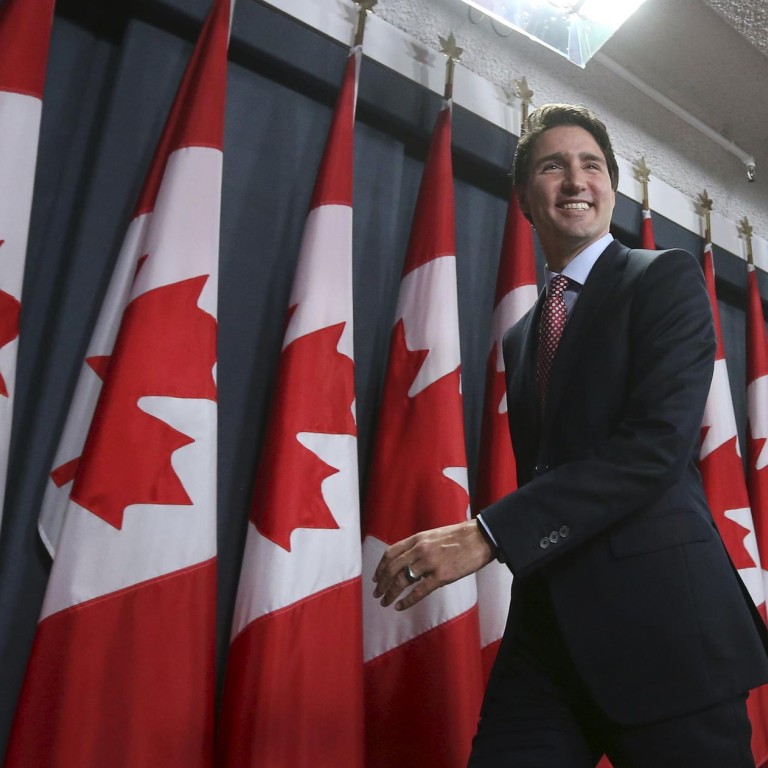
'We're back': New Canadian PM Justin Trudeau promises to restore his country's reputation as compassionate and constructive
Trudeau promises to reverse his predecessor's stance of climate change, which disappointed many allies.
Liberal leader Justin Trudeau has reached out to Canada's traditional allies after winning a powerful mandate to change tack on global warming and return to the multilateralism sometimes shunned by his predecessor.
Monday's decisive win ended nearly a decade of Stephen Harper's Tory rule, prompting the 43-year-old Trudeau to rebuild ties that soured over the issue of climate change with a "constructive" new style of government.
"I want to say to this country's friends all around the world: Many of you have worried that Canada has lost its compassionate and constructive voice in the world over the past 10 years," the prime minister-elect told cheering supporters in Ottawa.
"On behalf of 35 million Canadians, we're back," said Trudeau, the telegenic son of the beloved late premier Pierre Trudeau.
The White House said President Barack Obama, whose administration had clashed with Harper on climate policy, looked forward to partnering with Trudeau on the combatting climate change, as all eyes turned towards the Paris climate conference in December.
But Trudeau diverged from the path forged by his US ally on security, informing Obama by telephone that he will withdraw fighter jets from a US-led coalition against the Islamic State group in Iraq and Syria.
Read more: Trudeau is really, really good looking! Shirtless photos of Canadian prime minister dominate social media
Trudeau said however that he will keep Canadian military trainers in northern Iraq.
Secretary-General Ban Ki-moon, meanwhile, urged Canada's new leaders to help clinch a historic climate deal in Paris.
Labelled a "climate laggard" by the UN, Canada under Harper became the first country to pull out of the landmark Kyoto Protocol in 2011, inflicting lasting damage on relations with allies in Europe, among others.
"Canada is a member of the Group of Seven and as a result, it has a particular role to play in terms of providing leadership on climate change issues," UN spokesman Farhan Haq said. "The secretary-general hopes and expects that Canada will play that role."
Monday's election for many Canadians was a referendum on Harper's autocratic style and their country's loss of clout on the world stage.
Read more: Son of late PM Pierre Trudeau set to move back into his childhood home - this time as nation's leader
As prime minister, Harper radically altered Canada's foreign policy, transforming it from an impartial arbiter to an assertive power with its own agenda, including strident support for Israel and refocusing aid from Africa to South America.
Under Harper, the country also lost a bid for a rotating UN Security Council seat and failed to get US approval for a pan-continental oil pipeline first proposed in 2008.
"[Under Trudeau], I think we'll see Canada become a more constructive actor in international affairs," University of Ottawa international affairs professor Roland Paris said.
Trudeau also vowed to significantly boost Canada's intake of Syrian refugees, more than doubling it to 25,000 by year's end, insisting only political will has been lacking so far. Foreign aid could also see an increase for the first time since 2010.
Trudeau and his cabinet - which he said will include equal numbers of men and women - will be sworn in on November 4.

